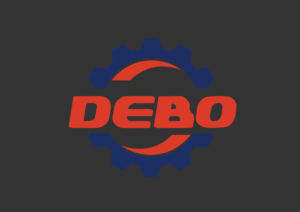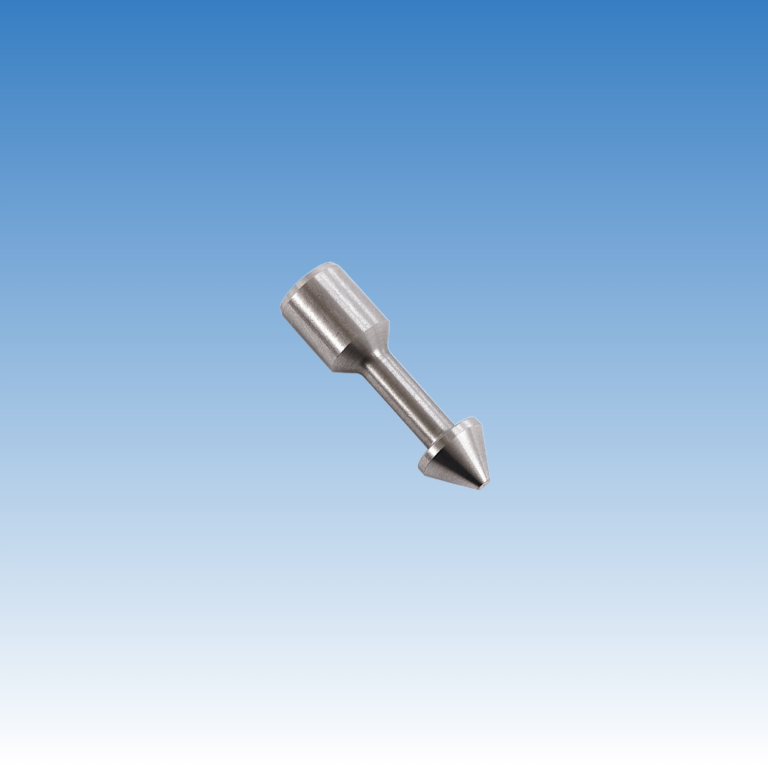In industries such as machinery, electronics, medical devices, renewable energy, and automotive manufacturing, precision fasteners play a vital role in ensuring structural integrity and assembly accuracy. Among all material choices, stainless steel stands out for its excellent corrosion resistance, stable mechanical performance, and wide availability. It is widely used in producing screws, bolts, nuts, and washers for both standard and custom applications.
This article provides an in-depth overview of the most commonly used stainless steel materials for precision fasteners, including types such as Type 304, Type 316, Type 316L, Type 410, Type 420, Type 430, and Type 17-4 Precipitation Hardening stainless steel. We will compare their physical properties, application suitability, and key advantages and disadvantages to help you select the right material for your needs.
Ⅰ. 304 Stainless Steel: The Most Common Austenitic Grade
304 stainless steel is the most commonly used material for precision screws, bolts, nuts, and washers.
Features & Applications:
- Contains 18% Chromium and 8% Nickel (often referred to as 18-8 stainless steel).
- Excellent corrosion resistance under general atmospheric and mild chemical exposure.
- Commonly used in household appliances, electronics, furniture, and general machinery.
Pros:
- Good formability and weldability.
- Excellent corrosion resistance in indoor and mild outdoor environments.
- Non-magnetic in the annealed condition.
Cons:
- Susceptible to chloride-induced corrosion (e.g., in salty or coastal environments).
- Lower strength compared to hard enable steels.
When making a stainless-steel fasteners material comparison, 304 is ideal for general-purpose fasteners due to its excellent balance between performance and cost.
Ⅱ. 316 Stainless Steel: Superior Resistance to Chloride Corrosion
316 stainless steel fasteners are widely used in marine and chemical environments where chloride resistance is critical.
Features & Applications:
- Similar to 304 but contains 2–3% Molybdenum for improved pitting resistance.
- Commonly used in ships, chemical tanks, medical devices, and food processing equipment.
Pros:
- Outstanding resistance to saltwater, chlorides, and corrosive chemicals.
- Maintains mechanical integrity in humid or aggressive environments.
Cons:
- Around 30% more expensive than 304.
- Slightly harder to machine due to higher alloy content.
The key point in 304 vs 316 fasteners is their corrosion performance — if your application involves chlorides or corrosive fluids, 316 is the clear winner.
Ⅲ. 316L Stainless Steel: Low-Carbon Grade with Better Weldability
316L stainless steel fasteners are a low-carbon variant of 316, offering improved weldability and better resistance to intergranular corrosion after welding.
Pros:
- Ideal for welded structures and components exposed to aggressive chemicals.
- Good dimensional stability and corrosion resistance over time.
Cons:
- Slightly lower tensile strength compared to 316.
- Slightly higher price due to refined composition.
316L is preferred in pharmaceutical, vacuum, and food-grade equipment requiring precision stainless steel fasteners with weld-safe properties.
Ⅳ. 410 Stainless Steel: High Strength at Lower Cost
410 stainless steel fasteners are martensitic grades that offer good mechanical strength and wear resistance at an affordable cost.
Features & Applications:
- Can be heat treated to achieve hardness levels above HRC 40.
- Often used in automotive parts, tooling, and general-purpose industrial bolts and screws.
Pros:
- High strength, good wear resistance.
- Relatively easy to machine and harden.
Cons:
- Limited corrosion resistance — not suitable for wet or salt-rich environments.
- Can rust over time without proper coating or surface treatment.
If you're looking for a high strength stainless steel screw for dry or mechanical applications, 410 offers a cost-effective solution.
Ⅴ. 420 Stainless Steel: High Hardness for Specialty Fasteners
420 stainless steel fasteners are used in applications where extremely high hardness and wear resistance are required.
Pros:
- Can be heat-treated to over HRC 50.
- Excellent polish ability, suitable for mirror-finish parts.
Cons:
- Brittle after hardening, with lower toughness.
- Poor corrosion resistance compared to 304 or 316.
Commonly used in cutting tools, molds, and components requiring both hardness and dimensional stability.
Ⅵ. 430 Stainless Steel: Budget-Friendly Ferritic Option
430 stainless steel fasteners are cost-effective options for indoor and decorative use where corrosion resistance is not a top priority.
Pros:
- Low cost, nickel-free composition.
- Good formability and magnetic properties.
Cons:
- Not suitable for marine or chemical environments.
- Poor weldability and low toughness.
When cost is a major factor and exposure to corrosion is minimal, 430 fasteners can be used in appliances, light fixtures, and decorative panels.
Ⅶ. 17-4PH Stainless Steel: High Strength + Corrosion Resistance
17-4PH stainless steel fasteners combine high mechanical strength with decent corrosion resistance, ideal for demanding engineering environments.
Features & Applications:
- Precipitation hardening stainless steel containing Chromium, Nickel, and Copper.
- Widely used in aerospace, nuclear energy, and high-precision mechanical assemblies.
Pros:
- Extremely high strength and hardness.
- Stable dimensions after heat treatment.
- Better corrosion resistance than martensitic grades.
Cons:
- Expensive and difficult to machine.
- Heat treatment requires professional process control.
Among all high strength stainless steel screws, 17-4PH offers the best combination of performance and reliability for mission-critical systems.
Ⅷ. Choosing the Right Stainless Steel for Precision Fasteners
Selecting the right stainless steel fasteners material requires balancing cost, corrosion resistance, strength, and application conditions. Here's a quick selection guide:
| Application Condition | Recommended Material | Notes |
| General indoor use | 304 | Best cost-performance ratio |
| Marine/chemical environment | 316 / 316L | High corrosion resistance |
| High mechanical load | 410 / 420 | Heat-treatable, strong |
| Cost-sensitive projects | 430 | Budget option with basic corrosion resistance |
| High-performance systems | 17-4PH | Best for strength and durability |
Ⅸ. Final Thoughts: Material Selection Drives Performance
Choosing the right material is the first step in ensuring product performance and lifecycle. As this stainless-steel fastener’s material comparison shows, each grade has its unique advantages and limitations. Whether you need corrosion resistance, strength, weldability, or cost efficiency, there's a stainless-steel grade to match.
If you need support with selecting materials, or if you have non-standard precision fastener requirements, feel free to reach out. We specialize in custom stainless-steel fasteners, offering technical support and tailored solutions for global customers.


